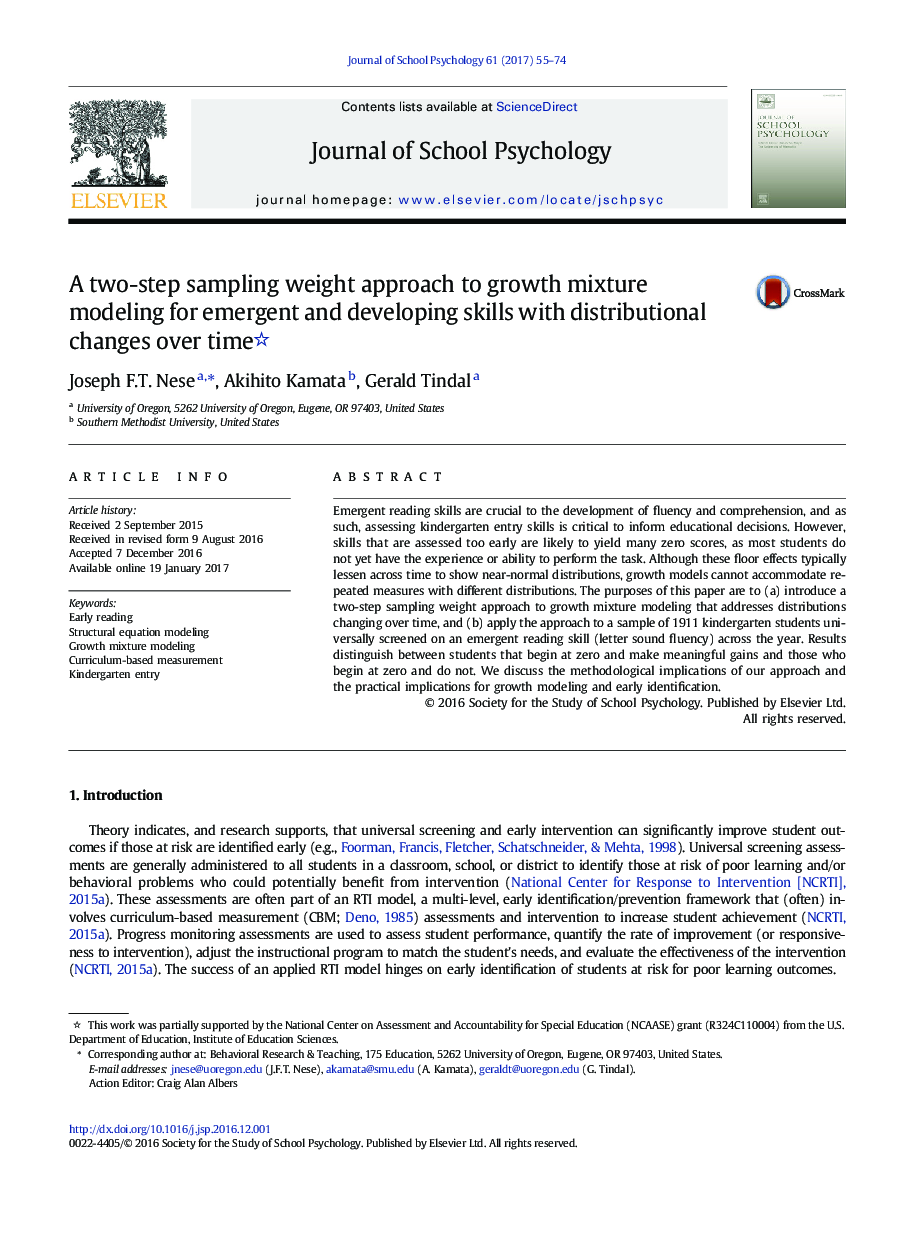| Article ID | Journal | Published Year | Pages | File Type |
|---|---|---|---|---|
| 4939767 | Journal of School Psychology | 2017 | 20 Pages |
Abstract
Emergent reading skills are crucial to the development of fluency and comprehension, and as such, assessing kindergarten entry skills is critical to inform educational decisions. However, skills that are assessed too early are likely to yield many zero scores, as most students do not yet have the experience or ability to perform the task. Although these floor effects typically lessen across time to show near-normal distributions, growth models cannot accommodate repeated measures with different distributions. The purposes of this paper are to (a) introduce a two-step sampling weight approach to growth mixture modeling that addresses distributions changing over time, and (b) apply the approach to a sample of 1911 kindergarten students universally screened on an emergent reading skill (letter sound fluency) across the year. Results distinguish between students that begin at zero and make meaningful gains and those who begin at zero and do not. We discuss the methodological implications of our approach and the practical implications for growth modeling and early identification.
Keywords
Related Topics
Social Sciences and Humanities
Psychology
Applied Psychology
Authors
Joseph F.T. Nese, Akihito Kamata, Gerald Tindal,
